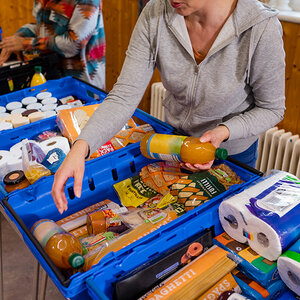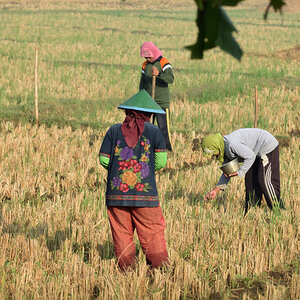Indonesia Tsunami Relief Effort Disorganized, Report Says
Although the relief effort along the remote west coast of Indonesia's Aceh province, one of the areas hardest hit by the tsunami, has brought food and medicine to most of the affected population, it continues to be hampered by insufficient coordination, says a draft report compiled by fourteen government and private agencies working in the region.
The report, which was based on a six-day survey of twenty-five sites along a 106-mile swath of coast where at least 35,000 people died and 125,000 were displaced, found an abundance of highly trained medical professionals and antibiotics but a lack of primary healthcare workers and a shortage of dressings for wounds, stethoscopes, and childbirth equipment. And while clean water is available, though not in the quantities needed, sanitation remains a concern.
According to Rob Holden, worldwide operations manager for the World Health Organization, who led the survey, local and international aid groups need to do a better job of coordinating their efforts. Aid workers "do what they think is best, and sometimes a particular country or a particular agency may well send materials or equipment that may not be what is required at that stage," Holden told the Washington Post. "Or it may be that they haven't asked the wider question — Is someone else sending that, do I need to send something else?"
Still, the report found that the number of cases of malaria, measles, and diarrhea were lower than expected, and food was reaching most large population groups, though often not the people, such as pregnant women, who needed it most. In addition, schools in some areas are ready to reopen, markets are again selling locally produced food, and field hospitals have seen new patient visits drop from more than a hundred to thirty or forty-five a day.
According to Indonesian officials, more than fifty international organizations and over 8,000 volunteers are engaged in the relief effort, along with 8,000 U.S. military personnel. "What we've got to do is make sure we better target the assistance based on need, to make sure we get the biggest impact," said Holden. Aid groups have largely been executing "hit-and-run missions, just basically to get supplies going. What we're saying now is, take a step back and start to prioritize."






